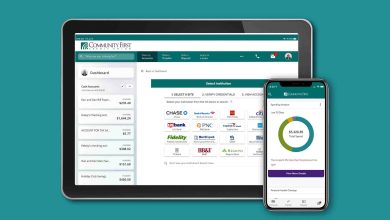Medical Financing When a Credit Score is Not Enough

According to Healthcare Finance Direct, nearly 14% of Americans have absolutely no credit history and, as a result, no credit score. Interestingly, most of this population qualifies for traditional financing based on their incomes.
Why is Medical Financing Essential for Patients?
The Kaiser Family Foundation found that, over the past decade, medical insurance deductibles have risen over 110%. High-cost medical bills can weigh down even the most resilient and well-intentioned patients. In fact, individuals who have debt resulting from acquiring medical treatment struggle to keep up with bills, which can have mental and physical health implications such as high blood pressure and increased stress.
Post Given the enormous financial burden which results from receiving medical care, patients in the United States could greatly benefit from the opportunity to finance their medical bills over time. Medical funding makes health care more accessible and cheaper for patients. Patients can reimburse their debts in smaller increments over months or years, enabling them to continue living high-quality lives while paying off medical debts.
Traditional Medical Financing Options
Medical Credit Cards
You can use Care Medical credit cards to pay for partial or optional medical services. Care Credit allows patients to apply online or by telephone in just a few minutes. Patients hoping to use Care Credit must meet several requirements, including having a minimum credit score of 620. Applications result in a hard credit check which drops an applicant’s credit score by a few points. However, there are no activation costs for new accounts created.
Patients’ terms of financing depend on their loan amounts. Patients who owe more money on their cards usually have longer periods to repay Care Credit. Yet, the longer a repayment term is, the higher the APR. Patients generally get an APR of 27%. Although, 0% APR may be available through certain medical providers. They debts are repaid in six-, 12-, or 24-month terms, and minimum monthly payments are always met. Interest is compounded if payments are not made from by the end of a patient’s promotional period.
Personal Credit Cards
Financing medical debts via credit cards may be ideal because many companies, such as Citi and American Express, offer introductory APRs of 0% for up to 15 months and have exceptional welcome offers that include the potential to gain cashback. It should be noted that these companies require applicants to have “good” or “excellent” credit ratings to qualify for any of their cards. Also, applicants with higher credit scores, better repayment histories, and larger incomes are more likely to access exclusive offers with impressive perks. For instance, the applicants mentioned above will likely be presented with lower APRs. They have more flexible terms, and even sign-up bonuses.
Loans
Lending USA offers personal loans for many purposes. The loan is available for medical billing purposes. This lender provides loans between $1,000 to $47,500 to individuals with a FICO score of 620 or higher, providing borrowers immense purchasing power. Patients can fill out a loan application in minutes and receive a pre-approval decision in just seconds on the Lending USA website.
With Lending USA, patients can benefit from low-interest rates if they repay their loan within six months. However, if their loan is not repaid in six months, the interest is compounded from the date they receive the loan. This means that patients need more than half a year to repay costly medical procedures. They punished with fees of hundreds or thousands of dollars. Loan origination fees at Lending USA may also be significantly higher than other loan or payment plan companies.
Ally is a lending service offering medical installment loans, allowing patients to make consistent monthly payments over time, which makes budgeting easy! Patients using this loan company do not have to make down payments or pay application fees. The company does not penalize patients who pay off their loans early. Some medical providers may even offer 0% APR on patients’ loans if they meet all the necessary provisions.
Alternative Medical Financing Options
While all of the financing options mentioned previously can help patients hoping to finance their medical bills, traditional forms of financing are inaccessible to the 14% of Americans who do not have credit. Patients with a poor credit score would qualify for financing as the above-mentioned list. That offers APRs closer to 25%, without any additional bonuses. So, what other options are available? Well, payment plans are a financing option growing in popularity.
Healthcare Finance Direct
Healthcare Financing Direct offers payment plans to patients who wish to finance their medical bills. But, It may not qualify for popular financing choices. Offer payment plans are generally create based on the risk of default. That is calculate using almost a million patients’ data. Patients’ APRs and terms are individually determined based on factors such as their stability. It spending habits rather than their credit scores and histories directly. However, this company runs a credit check on applicants, unlike companies such as Denefits.
Denefits
Denefits offers flexible payment plan options to 100% of applicants. Because Denefits does not check applicants’ credit scores to determine their approval, this company can help virtually any medical patient. How payment plans operate is that, as Denefits receives payments from patients. They pay the companies that have provided services to such patients.
Notably, Denefits can help patients finance copayments or deductibles that other companies may see as insignificant. While many other companies would charge substantial interest on a $300 loan. Denefits offers low-interest rates to help patients pay off their debts over time. Also, “social payments” enable the families and friends of patients to easily contribute to the repayment of their debts. While Denefits does not collect the credit information of individuals seeking a payment plan. They report payment information to credit bureaus, which can boost borrowers’ credit. Denefits’ payment plans do not increase interest on overdue payments.
Additionally, Denefits only charges a small one-time enrollment fee compared to the high-cost origination fees of other companies.
Endnote
Denefits guarantees patients the ability to create a payment plan with their company. Ask your medical practice if they know about Denefits or direct them to www.denefits.com to learn more!




